Business
Kenyan Shilling plunges against dollar since William Ruto’s victory
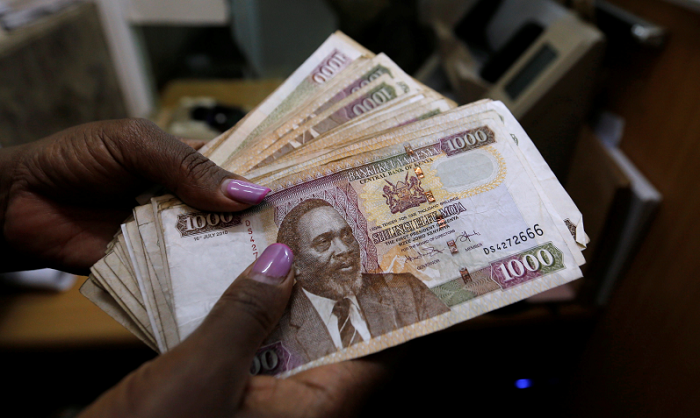
Kenya’s currency, the shilling weakened against the dollar on Tuesday as the country’s election commission announced Deputy President, William Ruto winner of the country’s election the day before.
On Monday, August 15th, the Kenyan shilling was trading at 119.25 shillings per dollar but fell to its lowest level against the greenback on Tuesday, trading at 199.50 shillings.
The currency of East Africa’s largest economy has fallen by 6.46% against the US dollar since January. Kenya’s incoming President would have to confront concerns about dollar supply head-on.
Kenya serves as a commercial hub for East and Central Africa, and is home to the regional offices of large corporations like Alphabet and Visa. Foreign investors frequently trade the country’s equities, bonds, and shilling in Africa.
But the tea-rich country is currently ranked as the second-worst investment destination in the world by the IMF. Even if the government has rejected this ranking as false, reactionary investors will need more convincing.
Kenya is also on track to spend a record amount of money on servicing its liabilities this year. Budget documents presented in April show that the East African nation’s debt-servicing costs climbed to 1.39 trillion shillings ($12.1 billion) in 2022.
The East African nation’s biggest source of foreign currency is remittances by citizens living outside its borders. Inflows in the first six months of 2022 rose 17% to $2.04 billion from a year earlier, according to central bank data.
Furthermore, a survey by Afrobarometer says nine out of ten Kenyans believe the economy is not doing well. William Ruto, being president of Kenya would have four years to change this perception of the economy.
Business
Sudan introduces new banknotes to revive war-torn economy
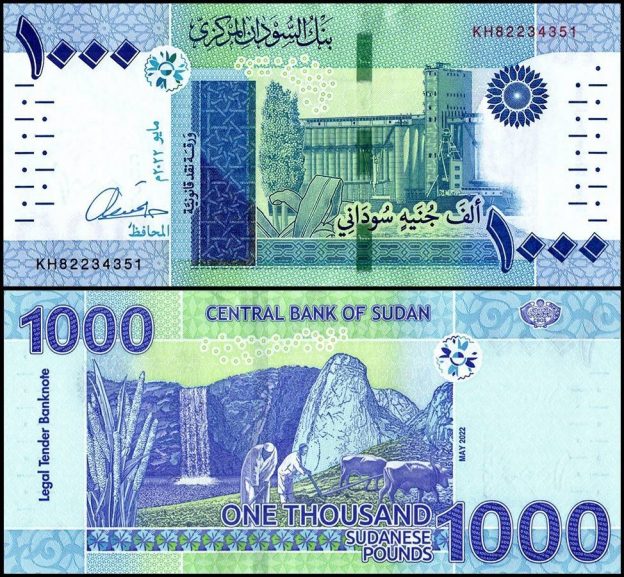
The Sudanese government, in an effort to stabilize its crumbling economy, has introduced new banknotes and compelled the largely unbanked population to open bank accounts.
The initiative, launched in December, aims to render funds looted by the paramilitary Rapid Support Forces (RSF) worthless.
According to Finance Minister Jibril Ibrahim, the initiative has been successful, though he did not specify the amount of Sudanese pounds deposited.
Sudan has been embroiled in a two-year conflict between the army and the RSF, which has severely damaged the economy, devalued the currency by three-quarters, and left half the population facing hunger.
Ibrahim stated that the government’s move has significantly boosted bank deposits. “This helps the banking sector, and when you help the banking sector, that helps the state to finance projects, including the war effort and productive activities,” Ibrahim told Reuters in an interview.
Limited amount to be withdrawn daily
To receive the new 500-pound and 1,000-pound banknotes, citizens have been required to deposit their old notes in banks and are allowed to withdraw limited amounts daily. This strategy has drawn funds from a largely unbanked society into the formal financial system.
Since the onset of the war, RSF soldiers have looted numerous banks and obstructed agricultural activities, making it difficult for the army-aligned government to pay salaries and finance essential goods such as medicine.
Ibrahim noted that Sudan produced 64 tonnes of gold last year and officially exported about half, indicating that the proportion of looted gold in army-controlled areas has decreased.
A source at Sudan’s central bank revealed that the new banknotes were printed in Russia, one of several foreign powers intervening in the conflict.
Business
Ghana’s inflation rises to 23.8% — highest in eight months
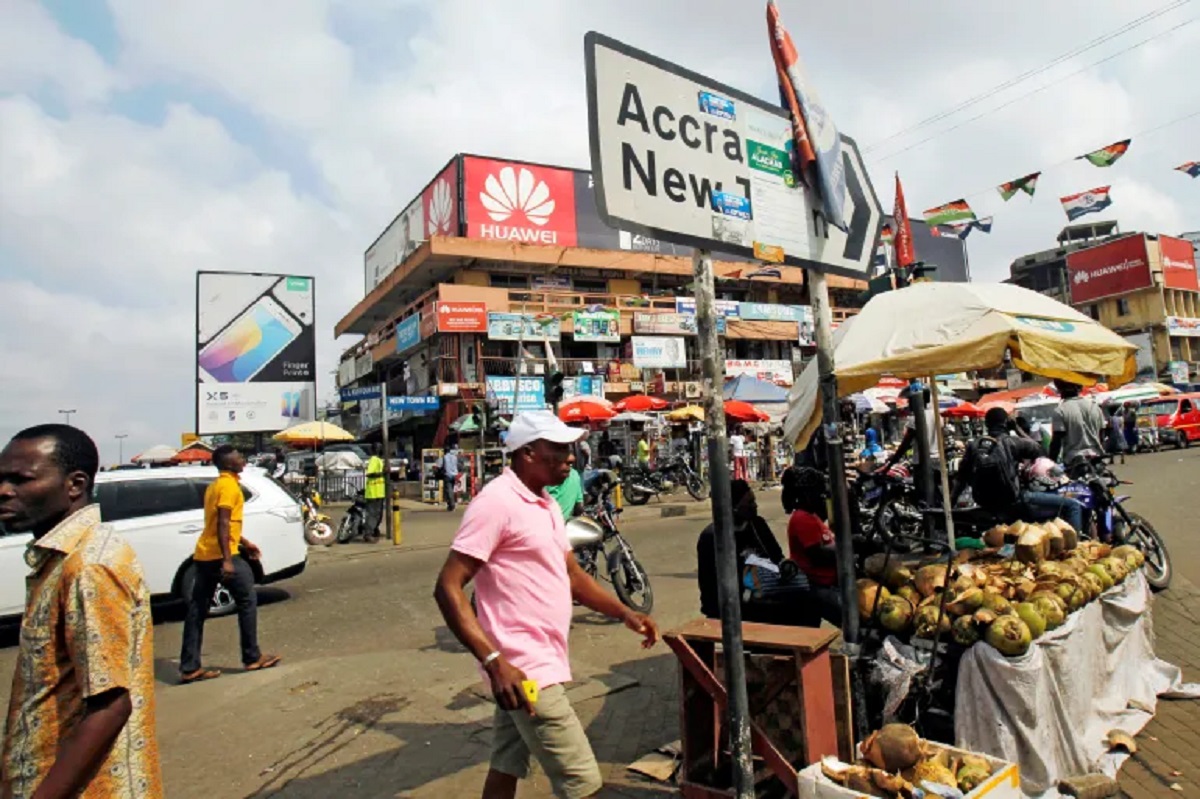
Ghana’s consumer inflation rate rose for the fourth consecutive month to 23.8 percent in December 2024.
Samuel Kobina Annim, government statistician at the Ghana Statistical Service (GSS), announced the figure to journalists in Accra on Wednesday.
Ghana’s inflation rate started rising in September last year, when it rose to 21.5 percent, then climbed further to 22.1 percent in October and 23 percent in November.
Annim said the inflation rate recorded at the end of last year was the highest in eight months.
“The rate of inflation… is the third highest in the last 13 months and highest in the last eight months,” Annim said.
Also, food inflation saw a significant jump, rising from 25.9 percent in November to 27.8 percent in December.
Annim attributed the increase to the contributions from specific food items, such as yams, showing drastic year-on-year price hikes of 63.3 percent.
He also highlighted the need for a dual approach to tackling inflation, addressing both monetary and real-sector issues.
“We do emphasise that there are two perspectives in addressing inflation. One is the monetary side… and the other is the real side, with what we’ve seen with food inflation, more particularly the food that we consume, that are locally produced,” he added.
Annim urged policymakers to focus on production, value chains, transportation, warehousing, and reducing post-harvest losses to stabilise food prices.
“Policymakers put in diverse interventions, rather than focusing on, let’s say, only exchange rate or focusing on just some selected items that do not cover the variety of food items that influence food prices,” he said.
Business
Governor Sanwo-olu signs N3.366trn 2025 budget
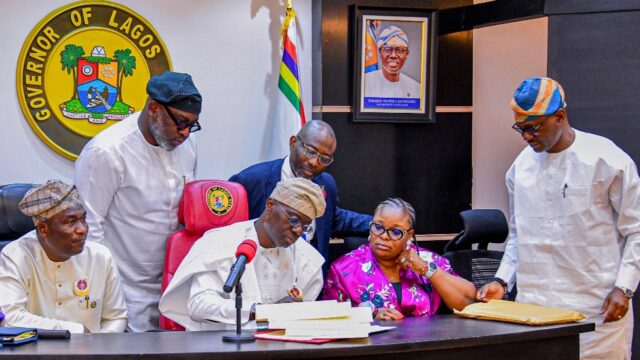
Lagos State Governor, Babajide Sanwo-Olu, on Thursday, signed the 2025 appropriation bill into law.
The Special Adviser on Media and Publicity to the Governor, Gboyega Akosile, made this known in a post on his X handle.
He said the budget size is N3.366 trillion meant for the continuation of the great works of the Sanwo-Olu administration.
-

 Business1 week ago
Business1 week agoAir France deboards French national in Abuja airport for unruly behaviour
-

 Entertainment1 week ago
Entertainment1 week agoLala Akindoju loses dad
-

 News1 week ago
News1 week ago‘He’s a dead man walking’ — military threatens to eliminate Bello Turji
-

 News1 week ago
News1 week agoCelebrating Excellence in Nigeria: The Icons of Resilience, Leadership, and Innovation in 2024!
-
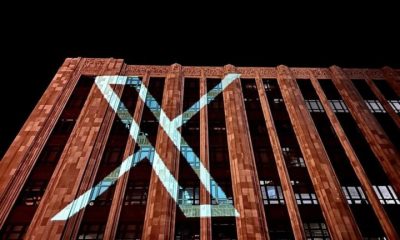
 Business1 week ago
Business1 week agoX to launch payment system this year
-

 News1 week ago
News1 week agoFire razes police station, three buildings in Lagos
-

 News1 week ago
News1 week agoBenin Republic summons Nigerien envoy over terrorism allegations
-
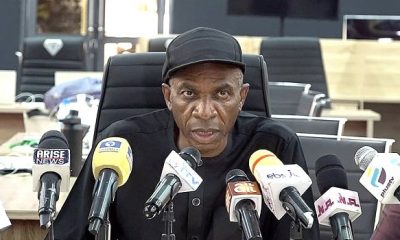
 Politics1 week ago
Politics1 week agoEdo PDP alleges plot to impeach LGA chairpersons over financial misconduct


















